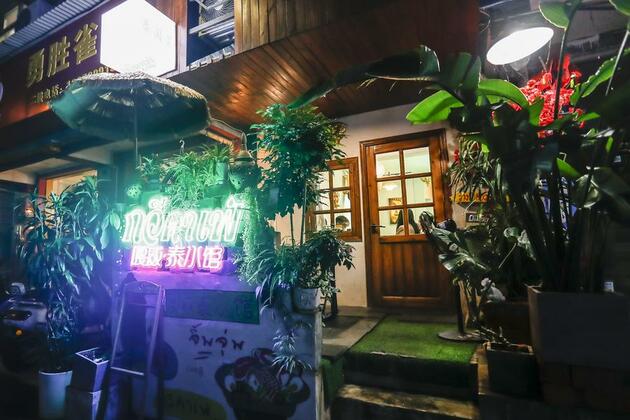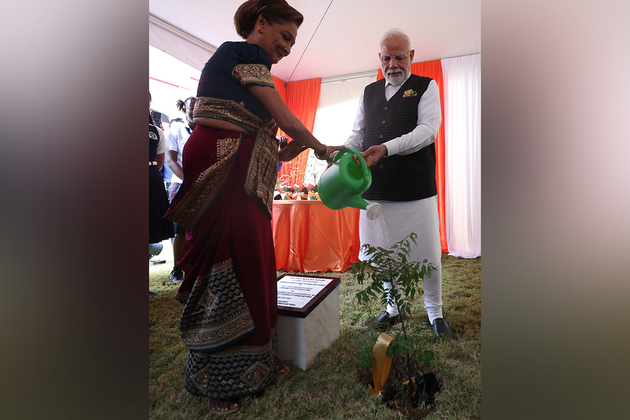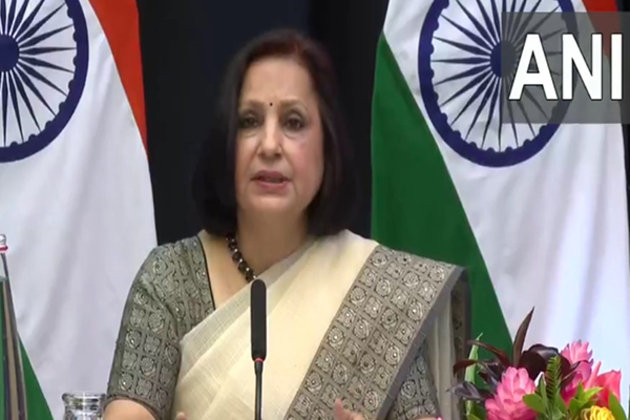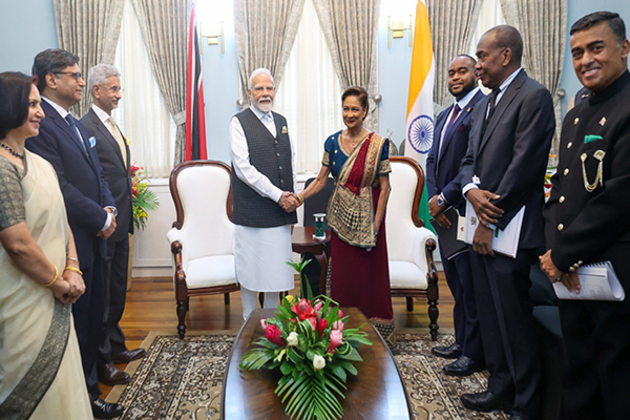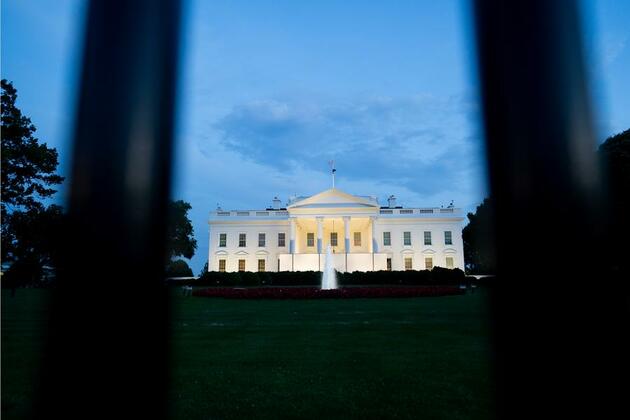Feature: How Kiswahili is building a cultural bridge between China, Tanzania
Xinhua
07 Jul 2025, 23:15 GMT+10

DAR ES SALAAM, July 7 (Xinhua) -- On a quiet morning, inside a sunlit classroom at the Confucius Institute at the University of Dar es Salaam, a group of Chinese teachers was reciting Kiswahili greetings.
"Habari za asubuhi," one said, smiling. "Nzuri sana," responded another. This simple exchange, "good morning" and "very good," is more than just a language lesson.
It represents a growing movement of cultural curiosity, mutual respect, and educational exchange between China and Tanzania.
As the international community marked World Kiswahili Language Day on Monday, the spirit of this day came vividly alive at the Confucius Institute of Tanzania's largest university, where Chinese nationals were embracing Kiswahili not just as a language but as a gateway to understanding local life.
Kiswahili, also known as Swahili language, is one of Africa's most widely spoken languages, serving as a lingua franca across East and Central Africa.
The General Conference of the United Nations Educational, Scientific and Cultural Organization (UNESCO), at its 41st session held in Paris, France, in 2021, proclaimed July 7 of each year as World Kiswahili Language Day, making it the first African language to be recognized in such a manner by the UN.
Yang Xin, a Chinese language teacher at the Confucius Institute, said learning Kiswahili has been both a challenge and a necessity.
"At first, I couldn't understand anything," she recalled. "But thanks to the Confucius Institute, I started learning. It helps me adapt to life here and connect with people."
Zou Zhenzhen, another Chinese teacher, echoed that sentiment. "Even using just a few Kiswahili words in class makes a difference. It shows students we respect their culture, and it makes them more excited to learn Chinese. You can see it on their faces."
Their approach is simple yet effective: to ask for help, practice outside of class, and apply what you've learned when shopping, riding taxis, or simply chatting with colleagues.
"Now I can order food, talk to a taxi driver, and even joke with friends. Language breaks the ice," Zou beamed with a smile. Both Chinese teachers have been learning Kiswahili for the past two months, attending two two-hour sessions on Sundays.
The impact of Kiswahili fluency goes beyond the classroom.
According to Emmanuel Legonga, a local Tanzanian Chinese language teacher at the Confucius Institute, who also teaches Kiswahili to overseas Chinese in Tanzania, speaking the local language has practical ripple effects across industries.
"In infrastructure projects like railways and ports, when Chinese managers or engineers use Kiswahili, it builds trust with local workers," Legonga explained. "It removes the sense of distance. Workers feel seen, respected."
This is especially important in the Belt and Road Initiative (BRI) projects, where large-scale collaboration between Chinese and Tanzanian professionals is vital. "Language opens the door to transparency. It reduces misunderstandings and builds confidence," he added.
Legonga was elated when he revealed that one of his Kiswahili students is Zhang Xiaozhen, Chinese director of the Confucius Institute at the University of Dar es Salaam.
In Zhang's eyes, interest in Kiswahili among Chinese nationals is steadily rising.
"In our last session, over 70 Chinese joined Kiswahili classes. This year, nearly 90 are enrolled," she noted. "Some start learning in China, others after they arrive. About 20 Chinese teachers have studied Kiswahili."
Zhang herself studies Kiswahili whenever her schedule allows. "Language is a bridge. It connects people. And Kiswahili is becoming more important, not just in East Africa but globally," she said.
Zhang has identified strong cultural parallels between China and Tanzania. "Tanzania's concept of Ujamaa, cooperation, and community echoes China's collectivist values. In both cultures, family and harmony are central," she remarked.
As Mussa Hans, Tanzanian director of the Confucius Institute, prepared to commemorate this year's World Kiswahili Language Day, he reflected on the institute's broader mission.
"We don't just teach language; we build relationships," he said. "We promote both Chinese and Kiswahili so that our people can understand each other better."
The vision is simple but profound: a future where the Chinese director speaks fluent Kiswahili and the Tanzanian director speaks Chinese.
"There should be no language barrier between our countries," he said. "Whether you are going from China to Tanzania or vice versa, learn Kiswahili, learn Chinese."
 Share
Share
 Tweet
Tweet
 Share
Share
 Flip
Flip
 Email
Email
Watch latest videos
Subscribe and Follow
Get a daily dose of International Technology news through our daily email, its complimentary and keeps you fully up to date with world and business news as well.
News RELEASES
Publish news of your business, community or sports group, personnel appointments, major event and more by submitting a news release to International Technology.
More InformationComputers
SectionEvolving Thai cuisine dominates China's Southeast Asian dining scene
TAIYUAN, July 7 (Xinhua) -- From bustling street stalls to upscale shopping malls, the Thai culinary scene in China is undergoing a...
PM Modi to inaugurate new terminal of Guwahati airport in November: Assam CM
Guwahati (Assam) [India], July 6 (ANI): Prime Minister Narendra Modi is set to inaugurate the new terminal of Guwahati's Lokpriya Gopinath...
PM Modi congratulates Trinidad and Tobago on adopting UPI
Port of Spain [Trinidad and Tobago], July 5 (ANI): Prime Minister Narendra Modi paid an official visit to Trinidad and Tobago from...
India to gift 2000 laptops to school students in Trinidad and Tobago, extends OCI Card facility up to 6th generation: MEA
Port of Spain [Trinidad and Tobago], July 5 (ANI): During his visit to Trinidad and Tobago Prime Minister Narendra Modi made a number...
India-Trinidad Tobago sign six MoUs to boost cooperation
Port of Spain [Trinidad and Tobago] July 5 (ANI): India and Trinidad and Tobago have signed six agreements during Prime Minister Narendra...
Roundup: Trump targets foreign tourists with higher national park fees
President Trump has ordered higher entrance fees for foreign visitors to U.S. national parks, sparking concerns from environmental...
Internet
SectionMeta hires SSI CEO Gross as AI race intensifies among tech giants
PALO ALTO/TEL AVIV: The battle for top AI talent has claimed another high-profile casualty—this time at Safe Superintelligence (SSI),...
Mumbai: Former Odisha CM Naveen Patnaik discharged from Kokilaben Dhirubhai Ambani hospital
Mumbai (Maharshtra) [India], July 7 (ANI): Former Odisha Chief Minister and Leader of Opposition in Odisha Assembly, Naveen Patnaik,...
PIB fact check exposes false Pakistan propaganda, alleging "loss of four Indian pilots"
New Delhi [India], July 7 (ANI): The PIB fact check has debunked the false claims made by a Pakistani propaganda account on the alleged...
Elon Musk mocks Trump over no arrests in Epstein case, feud escalates
Washington DC [US], July 7 (ANI): Tech billionaire Elon Musk trolled US President Donald Trump early Monday with a post mocking the...
Tulsi is back! Smriti Irani's first look from 'Kyunki Saas Bhi Kabhi Bahu Thi 2' out
Mumbai (Maharashtra) [India], July 7 (ANI): After 25 years, India's iconic daily soap 'Kyunki...Saas Bhi Kabhi Bahu Thi' is returning...
Mumbai: Son of MNS leader detained after video of him abusing woman goes viral
Mumbai (Maharashtra) [India], July 7 (ANI): A youth, identified as the son of Maharashtra Navnirman Sena (MNS) leader Javed Shaikh,...

